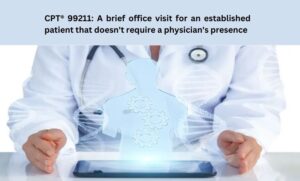In the ever-evolving landscape of modern healthcare, patient retention has become a paramount concern. As medical practices and hospitals strive to offer the best care, they must also focus on creating seamless and engaging experiences for patients. Digital experiences play a crucial role in this endeavor, ensuring that patients not only receive quality care but also feel valued and connected to their healthcare providers.
Understanding Digital Experiences
Digital experiences in healthcare encompass a wide array of interactions facilitated by technology. These include everything from online appointment scheduling and telehealth consultations to the use of mobile health apps and patient portals. By integrating these digital tools, healthcare providers can enhance the overall patient experience, making it more convenient, efficient, and personalized.
The Evolution of Patient Expectations
The advent of technology has significantly shifted patient expectations. In the past, patients were accustomed to lengthy waits, cumbersome paperwork, and limited access to their medical information. Today, they expect quick, easy access to care and information, mirroring the efficiency they experience in other aspects of their digital lives.
From Traditional to Digital: The Shift in Patient Expectations
Traditional healthcare models often involved physical visits, manual records, and limited patient-provider interaction outside of appointments. With the rise of digital technology, patients now expect virtual consultations, immediate access to their health data, and continuous communication with their healthcare teams.
The Role of Technology in Shaping Expectations
Technology has not only reshaped patient expectations but also provided the tools to meet them. Innovations such as telemedicine, health apps, and online portals offer patients unprecedented access to their healthcare, enabling them to manage their health more proactively.
Digital Tools for Enhanced Patient Engagement
Various digital tools have emerged to facilitate better patient engagement. Each tool plays a unique role in improving patient interaction and satisfaction.
Telemedicine: Bridging the Gap
Telemedicine has revolutionized the way patients access care, allowing them to consult with healthcare providers from the comfort of their homes. This convenience is particularly beneficial for those with mobility issues or living in remote areas.
Mobile Health Apps: Personalized Healthcare in Your Pocket
Mobile health apps provide personalized health management tools that patients can use daily. These apps offer features like medication reminders, fitness tracking, and health education, empowering patients to take charge of their health.
Patient Portals: Empowering Patients with Information
Patient portals give patients direct access to their medical records, test results, and appointment schedules. This transparency helps patients stay informed about their health and fosters a sense of control over their medical care.
The Role of Data in Personalizing Patient Care
Data plays a critical role in personalizing patient care. By leveraging big data and analytics, healthcare providers can offer more tailored experiences to their patients.
Harnessing Big Data for Tailored Patient Experiences
Big data allows for the collection and analysis of vast amounts of patient information. This data can be used to identify patterns and trends, enabling providers to tailor their services to meet the specific needs of their patients.
Predictive Analytics: Anticipating Patient Needs
Predictive analytics goes a step further by using data to anticipate future patient needs. This proactive approach can lead to early interventions, improving patient outcomes and satisfaction.
Enhancing Communication with Patients
Effective communication is vital in healthcare, and digital tools can significantly enhance this aspect.
Automated Appointment Reminders: Reducing No-Shows
Automated appointment reminders sent via text or email help reduce the incidence of no-shows, ensuring that patients attend their scheduled appointments and receive timely care.
Secure Messaging: Confidential and Convenient Communication
Secure messaging platforms enable confidential communication between patients and healthcare providers. This convenience allows patients to ask questions and receive advice without the need for an in-person visit.
Building Trust Through Transparency
Transparency is essential for building trust with patients. Digital tools can help achieve this by making information more accessible and comprehensible.
Transparent Billing Practices
Clear and transparent billing practices help patients understand their healthcare costs, reducing confusion and fostering trust in their providers.
Providing Clear and Accessible Medical Information
Digital platforms can present medical information in an easily understandable format, helping patients make informed decisions about their care.
The Importance of User-Friendly Interfaces
The effectiveness of digital tools depends largely on their usability. Ensuring that digital platforms are user-friendly is crucial for patient engagement.
Designing Intuitive Digital Platforms
Intuitive design is key to creating effective digital experiences. Platforms should be easy to navigate, with a logical layout and clear instructions.
Ensuring Accessibility for All Patients
Accessibility is equally important, ensuring that all patients, regardless of their technical proficiency or physical abilities, can use digital tools effectively.
Also Read:
Continuous Improvement Through Patient Feedback
Patient feedback is invaluable for continuous improvement. By regularly collecting and analyzing feedback, healthcare providers can make necessary adjustments to enhance the patient experience.
Collecting and Analyzing Patient Feedback
Feedback can be collected through surveys, online reviews, and direct patient interactions. Analyzing this feedback helps identify areas for improvement.
Implementing Changes Based on Patient Insights
Implementing changes based on patient insights demonstrates a commitment to patient-centered care, fostering loyalty and satisfaction.
The Future of Digital Experiences in Healthcare
The future of digital experiences in healthcare is bright, with emerging technologies promising to further enhance patient care.
Emerging Technologies and Their Potential Impact
Technologies such as artificial intelligence, blockchain, and wearable devices have the potential to revolutionize healthcare, offering more advanced and personalized patient experiences.
Preparing for the Next Wave of Digital Innovations
Healthcare providers must stay abreast of technological advancements to prepare for the next wave of digital innovations. Embracing these changes will ensure they continue to meet and exceed patient expectations. By integrating these digital experiences, healthcare providers can create a more engaging, efficient, and patient-centric approach to care, ensuring that patients not only return but also become advocates for their services.









